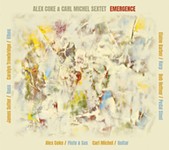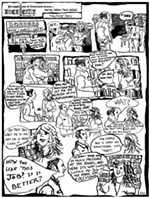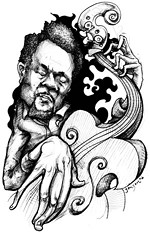Count Basie
Jazz sides
Reviewed by Harvey Pekar, Fri., May 27, 2005

Count Basie
The Complete Clef/Verve Count Basie Fifties Studio Recordings (Mosaic)
Count Basie's first band of the late-Thirties/early-Forties was his best. Accumulating so many outstanding musicians, William "Count" Basie didn't need elaborate arrangements to produce music of great quality. With men like Lester Young and Buck Clayton, he just had to find enough room for them to solo, and Basie's spare charts bookended brilliant solo after solo. His "Old Testament" band lasted until 1950, when, due to economic conditions, he formed a smaller group. His "New Testament" band of 1952 achieved a good deal of popularity and even made some hit records ("Every Day," "April in Paris"), but had different priorities than the earlier outfits as this 8-CD box set illustrates. Basie couldn't accumulate the number of star soloists of the old days, and perhaps, as a consequence, put increased emphasis on more thick-textured arrangements and ensemble polish, helped a great deal by lead alto saxman Marshall Royal. Rich reed and brass timbres and harmonies were heard more frequently. The solos became embedded in the charts, rather than the charts being springboards for the solos. Ironically, the "New Testament" band appealed more than ever to an older segment. Though not in as much profusion as before, Basie's Fifties bands did include fine soloists. Trumpeter Thad Jones, heard to advantage here on "April in Paris" and "Corner Pocket," was among the best in any era. Interestingly, Jones was a great avant-garde soloist who didn't adjust his style to fit Basie's more conservative approach. Happily, his spots fit like a glove into Basie's performances. Jones influenced trumpeter Joe Newman, though Newman was a name trumpeter before Jones. In Frank Wess, Basie had one of the greatest jazz flutists and a formidable tenor saxophonist. Frank Foster was another outstanding tenorman, whose sinewy solos recalled Sonny Stitt's. And when we speak of instrumentalists, let's not forget Basie himself, whose comping piano style and use of rests anticipated the modern jazz revolution of the Forties and Fifties. (This set can only be purchased from Mosaic Records, 35 Melrose Place, Stamford, Ct. 06902; 203/327-7111.)
![]()
![]()
![]()
![]()










